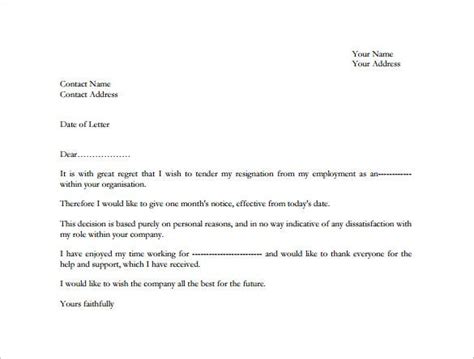Resigning Via Email: Effective Strategies And Tips

Resigning from a job can be a daunting task, particularly if you have never done it before. However, it is an inevitable part of any career path, and knowing how to resign professionally can make a lasting impression on your current employer. Email is a popular mode of communication for resignations, especially in remote work situations. In this post, we will discuss some effective strategies and tips for resigning via email.
1. Plan your resignation
Resigning from a job is a significant life event, and it is essential to do it with care. Before you send your resignation email, take some time to think about the reasons for leaving and how to communicate them professionally. Make sure you have a solid job offer or plan in place before resigning.
Example:
If you are resigning because you have found a better opportunity, be sure to thank your current employer for the experiences and opportunities you have had with them.
2. Keep it short and simple
Your resignation email should be concise and to the point. Keep it brief and straightforward, and avoid going into detail about your reasons for leaving. It is best to keep the email professional and avoid any negative comments about your current employer.
Example:
Dear [Manager’s Name],
I am writing to inform you that I have decided to resign from my position as [Job Title] at [Company Name]. My last day of work will be [Date].
Thank you for the opportunities and experiences I have had at [Company Name]. I wish you and the team all the best in the future.
Best regards,
[Your Name]
3. Be respectful and gracious
Resigning from a job can be an emotional experience, and it is important to approach it with respect and grace. Remember to thank your current employer for the opportunities they have provided, and to show appreciation for your colleagues and team members.
Example:
Thank you for the support and guidance you have given me during my time at [Company Name]. I have learned a lot from working with you and the team, and I will take these experiences with me as I move on to new challenges.
4. Offer to help with the transition
When resigning from a job, it is important to offer to help with the transition process. This can include training a replacement, creating handover notes, or assisting with the recruitment process.
Example:
Please let me know if there is anything I can do to help with the transition process. I am happy to provide training to my replacement and create handover notes to ensure a smooth transition.
5. Follow up with a formal letter
After sending your resignation email, it is a good idea to follow up with a formal resignation letter. This letter should include details of your resignation, your last day of work, and any offers to help with the transition. It should be printed on company letterhead and signed by you.
Example:
Dear [Manager’s Name],
I am writing to confirm my resignation from my position as [Job Title] at [Company Name]. My last day of work will be [Date].
Thank you for the opportunities and experiences I have had at [Company Name]. I wish you and the team all the best in the future.
Please let me know if there is anything I can do to help with the transition process.
Sincerely,
[Your Name]
Conclusion
Resigning from a job is an important decision, and it is essential to do it with care and professionalism. By following these tips and strategies, you can ensure that your resignation via email is respectful, concise, and effective.
FAQs
1. How much notice should I give before resigning?
It is standard to give at least two weeks’ notice before resigning. However, if you work in a senior position or have a long notice period, you may need to give more notice.
2. Should I explain my reasons for leaving?
You do not need to go into detail about your reasons for leaving in your resignation email. However, if your manager requests a meeting to discuss your resignation, you may need to provide some explanation.
3. Can I resign via email?
Yes, you can resign via email. However, it is important to follow the correct etiquette and ensure that your email is professional and respectful.
4. Should I offer to help with the transition process?
Yes, it is a good idea to offer to help with the transition process. This can include training a replacement, creating handover notes, or assisting with the recruitment process.
